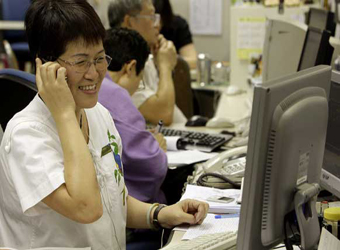Asian markets were mostly higher after Japan’s inflation data showed improvement and markets stateside clocked new record highs, even as threats of a trade war with Mexico brew.
A social media war of words between Mexican President Enrique Pena Nieto led to a canceled meeting with U.S. President Donald Trump over a border wall and trade relations hit the Mexican peso overnight.
During the Asian session, the peso fell more than 0.5 percent against the greenback at 21.358 after the White House said it might impose a 20 percent tax on goods from Mexico to pay for the wall along the U.S. southern border.
The lowest for the peso was when it reached 22.0385 to the dollar on Jan. 11.
“Regionally, it is hard to divorce ourselves from the Mexico storyline. How that plays out could have far-reaching ramifications locally,” said Stephen Innes, senior trade at Oanda, in a note on Friday.
Innes added that “when politics becomes the primary driver behind currency markets, expect confusion to reign.”
Meanwhile, Toshiba shares were up 1.01 percent, after the company said it will split off its memory chip business by end March and seek outside investment in it, Reuters reported.
The Japanese conglomerate also said it would unveil the size of the write down charge related to its Westinghouse nuclear business, on Feb. 14 when it reports its third-quarter results.
Japan’s Nikkei 225 closed up 0.34 percent or 65.01 points at 19,467.4, after data showed that Japan’s December core consumer prices fell 0.2 percent year-on-year, at its slowest pace since February.
The Australian benchmark index closed up 0.75 percent or 42.49 points at 5,714, supported by strong gains in its financials sub-index, which was up 1.3 percent and its staples sub-index, up 1.56 percent.
Hong Kong’s Hang Seng which was trading for just half a day, was nearly flat, down 0.06 percent at 23,360.78.
In Southeast Asia, Keppel shares dropped 1.88 percent after it posted its smallest annual profit growth in ten years on Thursday, and said it would close down three yards in Singapore due to poor orders for offshore drilling vessels.
Later in the day, the U.S. will announce its fourth-quarter gross domestic product data.
China, Vietnam, Taiwan and South Korea will be shut for public holidays today, while Singapore, Malaysia and Hong Kong will have a half-day bank holiday.
China is starting a week-long holiday on Friday that extends through Feb. 2 next week.
Over at Wall Street, the Dow Jones industrial average was up 0.16 percent at 20,100.91 at a new record high.
The S&P 500 was down 0.07 percent at 2,296.68 and the Nasdaq composite was nearly flat at 5,655.18, but both indexes had hit intraday highs during the Thursday session.
“The market likes what they have heard from Trump and his administration, where the rhetoric and actions highlighted a sheer urgency, purpose and drive to push the U.S. economy forward and this has traders putting risk back on the table,” said Chris Weston, chief market strategist at IG.
About 30 percent of S&P 500 companies have reported earnings, with 70 percent beating analysts’ expectations on the bottom line, and 56 percent beating sales estimates, according to data from the Earnings Scout.
The dollar index rose from a seven-week low to trade at 100.58 during Asian hours. The yen weakened against the greenback to trade at 114.91, while the Australian dollar was steady at $0.7528.
U.S. crude futures were flat at $53.78 a barrel on Friday, while global benchmark Brent gained 0.16 percent to $56.15.
Source: CNBC


